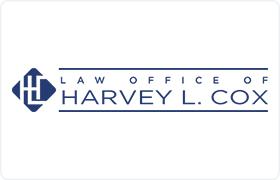Leroy Estate Lawyer, Texas, page 3
Sponsored Law Firm
-
 x
x

Click For More Info:
-
Law Office of Harvey L. Cox
1600 Lake Air Drive Suite 102 Waco, TX 76710» view mapEstate Law, Power of Attorney A New Perspective On Estate Planning
Our Family Estate & Business Planning focuses on protecting your assets from creditors, predators, lawsuits, judgments, liens, and greedy relatives.
800-795-7741
Kyle Gregory Knas
Wills, Trusts, Estate, Civil & Human Rights
Status: In Good Standing Licensed: 10 Years
Rodney A. Chamness
Commercial Real Estate, Intellectual Property, Gift Taxation, Business & Trade
Status: In Good Standing
Laura Beth Krasienko
DUI-DWI, Estate Planning, Car Accident, Family Law, Criminal
Status: In Good Standing Licensed: 22 Years
Bethany Sloane Lewis Badeaux
Wills, Estate, Business & Trade, Business
Status: In Good Standing Licensed: 24 Years
Curtis L. Brown
Commercial Real Estate, Wills, Gift Taxation, Business & Trade
Status: In Good Standing Licensed: 48 Years
Lawrence Johnson
Real Estate, Traffic, Trusts, Personal Injury
Status: In Good Standing Licensed: 49 Years
 Harvey L. Cox Waco, TX
Harvey L. Cox Waco, TX Practice AreasExpertise
Practice AreasExpertise
